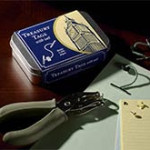No new gadget reviews or tech tips this week, folks. Instead, a reflection on surviving the Dog Days of August without computer, cell phone, or internet; and a memory of a few days spent on a cotton farm.
I’ve been reviewing old posts with an eye for topics I missed and would still like to feature, and the title of one article jumped out at me today, Sometimes Low-Tech Is Just Fine. Low-tech life. . . no tv, no computer, no air conditioning! It’s hot and dry in Southern California, school hasn’t started yet, traffic is lighter as Angelenos cram in a few more weeks of vacation in other places. . . it’s the Dog Days.
What a funny name. When I was younger, I thought the term referred to the heat – canine panting and drooling. Then, I went back to school for a graduate degree and heard that it has something to do with the zodiac. I took out my magnifying glass and my compact edition of the Oxford English Dictionary (must be 2-point type) to read:
Dog-days
1. The days about the times of heliacal rising of the Dog-star; noted from ancient times as the hottest and most unwholesome time of the year [followed by a very scientific discussion of exactly when the dog-days occurs, beginning anywhere from July 3 to Aug 15, depending on latitude and legend, and lasting from 30 to 54 days]
2. An evil time in which malignant influences prevail
The way I figure, on my calendar the Dog Days occur in mid-to-late August when it’s either hot and dry, or hot and sticky; everyone is waiting expectantly for fall to begin and the long days of summer to end. Sitting in my air-conditioned house with an internet connection to amuse and occupy my time, I wonder a bit how my ancestors filled those same Dog Days.
They probably made the best of them, like my farming aunts and uncles in Bakersfield, California. I remember visiting my grandmother’s sister in the farmlands north of Los Angeles. Aunt Rose and Uncle Ray owned a large farm and lived in a green clapboard house off a dusty road near Punkin Center. It was probably “Pumpkin,” but no one called it that. Their two sons lived in houses on either side of their old farmhouse, Uncle Hale on one side and Uncle Lowell on the other. One of them, I can’t remember which one, had a swimming pool; that was the only luxury on those farm “vacations.”
Rose and Ray Costerisan On Farm July 1964.
(Privately held by Denise Levenick, Pasadena, California. 2008.)
I stayed in the old farmhouse with Rose and Ray. By the time I woke up and came into the kitchen in the morning, the house was already hot and sticky and the kitchen full of the smell of ripe, ripe cantaloupe. The linoleum was old and clean, but so hot that my feet seemed to stick to the floor as I walked across the room. There was no air-conditioning, of course, so I felt hot and damp most of the time. In fact, my memory of times on the farm are mostly of cantaloupe and stickiness.
For entertainment, I“helped” pick cotton. Walking along the row of cultivated bushes, Uncle Ray showed me how to grab the fluffy white flower of the cotton blossom and pull it free. The seeds were tight little burrs that would be removed by a machine, but I picked them out by hand for my own little basket of soft cotton batting.
When that grew boring, I wandered around the yard admiring the chickens and peafowl and collecting the iridescent feathers. The birds were either skittish or mean as heck; you had to be on your guard against an attack.
In the late afternoon I would join my cousins for a swim before dinner. I can’t remember what we ate. Probably cantaloupe! Then after the dishes were cleared Uncle Ray brought out the spoons and started playing. He held them between his fingers and flicked them rhythmically over his thigh, making a tune grow out of the clacking metal. Sometimes, he altered the sound by substituting “bones” for the spoons. Now, I’m not sure just what those bones were made of. . . farm animal ivory? At the time, they seemed quite scary.
But nothing was as scary as Uncle Ray’s velvet case of teeth. Amused by seven-year-old toothless grin, Uncle Ray went into the house and came out with a small case. Flipping open the latch, he lifted the lid to reveal a velvet-lined case full of ivory teeth. I remember taking one look and running away, even as he howled in delight over my refusal to accept a new tooth.
Do you think that’s what our ancestors did in the Dog Days of August? Worked? Ate cantaloupe? Played a little music? Told stories and jokes? I bet that’s exactly what they did!






Denise, I want to thank you for this narrative on Ray and Rose. Ray would be my 1st cousin 3x removed. His father Michael Charles Costerisan was the brother of my 2nd great grandmother. I’ve been on a genealogy journey since 2012 and the Costerisan’s are a fun lineage. I grew up in So. Cal. and I’m just learning about the Costerisan’s who headed west from Liberty, Tioga, Pennsylvania to states like Wisconsin, Wisconsin, Iowa, Minnesota and then from there several headed to California but mostly Northern California. The California Costerisans are particularly fun because there are several newspaper articles about them going back to the mid-to-late 1800’s. The Costerisan name is French and our relative hails from Lyon. Anyway, thank you so much, Mary Anderson-Goodwin, Seattle, WA
Hello Cousin Mary! I love the way the internet helps us make family connections! I wondered where Ray’s family came from and am delighted to know a little more. He was such a fun man. I remember that he always had a story and joke for us kids. I’d love to see some of those newspaper articles. The family was very active in the Bakersfield area.
Thanks for getting in touch, Denise
Cousin Nick! Hello! And how did you find this post? Let's catch up! I'm so glad you stopped by and left a comment. Thank you thank you.
Ray was my great grandfather. Hale was my grandpa. The cousins you went swimming with were probably Victor and Bill (lowell n Nadines kids. And Caron n Carl. (Hales kids)
Carl is my dad. Its very interesting to come across your story.